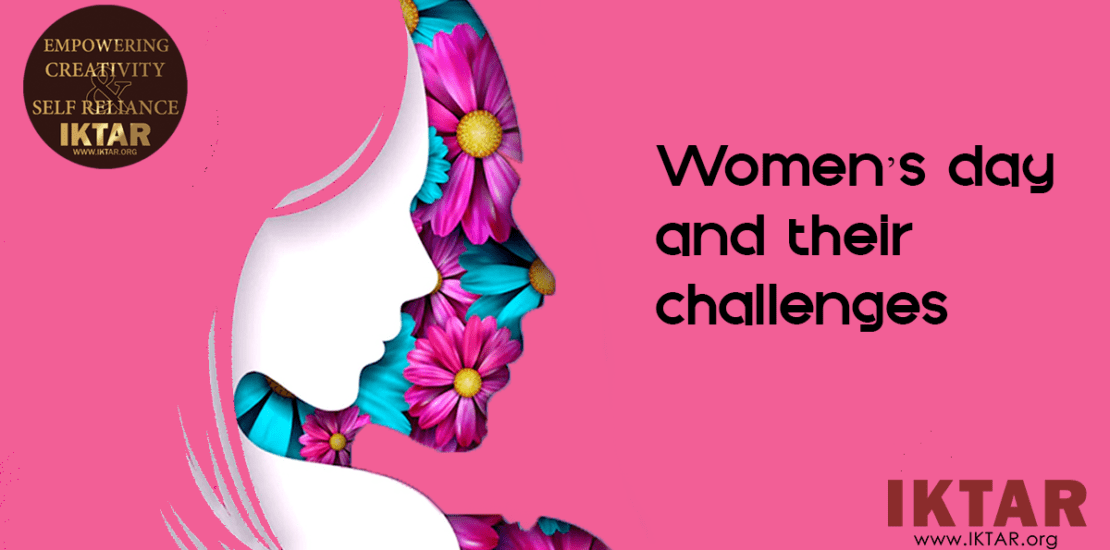Women’s Day and their Challenges
- March 8, 2023
- Posted by: Shafqat Jilani
- Categories: Blog, Business Consulting, Business plans, Business Troubleshooting, Finance & accounting, Human Resource, Leadership, Marketing, SME, Training and Development

Women’s Day: The Challenges the women in third world countries face are much greater than what the women in developed societies face.
International Women’s Day is an important day to celebrate the achievements of women worldwide, but it’s also a time to reflect on the challenges that women face, particularly those in third-world countries. While women in developed societies have made significant progress in terms of gender equality, the same cannot be said for women in many third-world countries. They face a range of challenges, from cultural and religious barriers to limited access to education and job opportunities. In this blog post, we will explore these challenges and discuss how they can be resolved while keeping in mind cultural limits and religious boundaries.
Challenges faced by women in third world countries
Limited access to education
Access to education is a basic human right, but it’s one that’s often denied to women in third-world countries. According to UNESCO, there are over 130 million girls out of school worldwide, with the majority of these girls living in sub-Saharan Africa and South Asia. The reasons for this are complex, but they often stem from cultural and economic factors.
Lack of job opportunities
Even if women are able to access education, they may still face significant barriers to finding work. In many third-world countries, women are expected to stay at home and care for their families, which means they have limited opportunities to enter the workforce. Discrimination and sexism are also major issues, with women often paid less than men for the same work.
Health issues
Women in third-world countries are often at greater risk of health issues due to poor healthcare infrastructure and limited access to healthcare services. Maternal mortality rates, for example, are significantly higher in these countries, with women facing a greater risk of complications during pregnancy and childbirth.
Cultural and religious barriers
Cultural and religious barriers can also be significant challenges for women in third-world countries. Women may be expected to conform to traditional gender roles and may be ostracized or punished if they do not. Religious laws and customs can also limit women’s freedom and autonomy, particularly when it comes to issues such as marriage and family planning.
How to resolve these challenges while keeping religious boundaries and cultural limits in mind?
Education
Education is key to empowering women and giving them the skills and knowledge they need to succeed. However, it’s important to approach education in a way that’s sensitive to cultural and religious boundaries. This may involve working with local communities and religious leaders to promote education as a value that aligns with their beliefs.
Job opportunities
Creating job opportunities for women is essential to promoting gender equality and empowering women. This can be achieved through initiatives such as microfinance programs that provide women with the funding they need to start their own businesses. Working with local communities and business leaders to promote gender equality in the workplace is also important.
Health services
Improving access to healthcare services is essential to promoting the health and well-being of women in third-world countries. This may involve investing in healthcare infrastructure and training healthcare workers to provide quality care to women. Working with local communities to promote the importance of healthcare and preventative measures can also be effective.
Cultural and religious barriers
Addressing cultural and religious barriers requires a sensitive approach that respects the beliefs and values of local communities. This may involve working with religious leaders to promote the rights and empowerment of women within the context of their faith. Promoting dialogue and understanding between different cultural and religious groups can also be effective.
Conclusion
Women in third-world countries face a range of challenges that are often far greater than those faced by women in developed societies. Limited access to education, job opportunities, health services, and cultural and religious barriers are significant obstacles to gender equality and women’s empowerment. However, by working with local communities and leaders to promote education, job opportunities, and healthcare services, and by addressing cultural and religious barriers sensitively and respectfully, progress can be made toward gender equality and women’s empowerment. It’s important to remember that change takes time and patience, but with a concerted effort, it’s possible to make a difference.
As an HR and business development company, we can play a role in addressing these challenges by providing support and guidance to organizations that are committed to promoting gender equality and women’s empowerment. We can help organizations create policies and initiatives that support women in the workplace, provide training and education on gender issues, and work with local communities to promote gender equality and women’s empowerment.
At IKTAR, we are committed to promoting gender equality and women’s empowerment in all aspects of our work. If you would like to learn more about how we can help your organization create a more inclusive and supportive workplace, please don’t hesitate to contact IKTAR . Let’s work together to make a difference for women in third-world countries and around the world.





